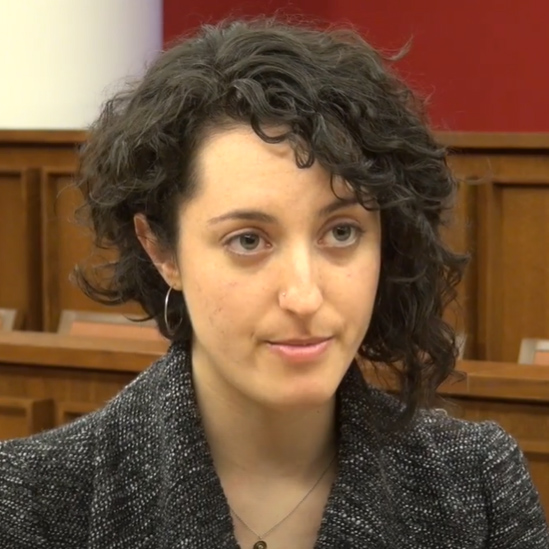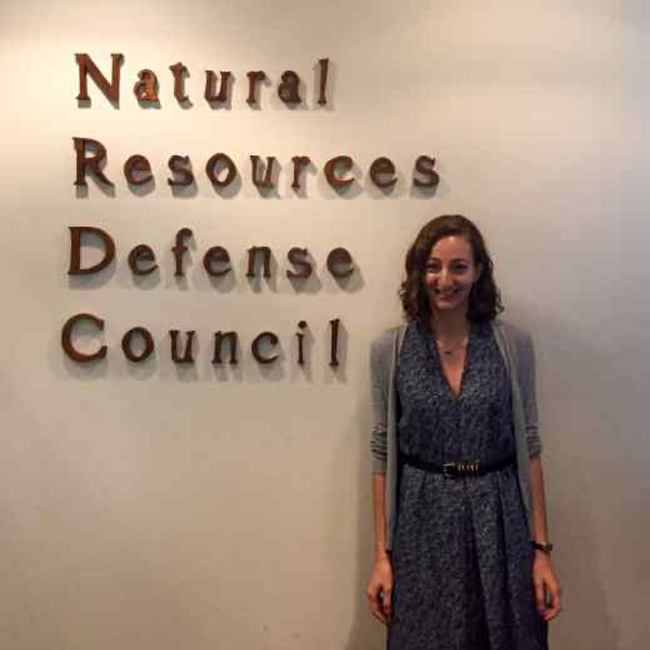The laws governing land, pollution, and natural resources shape both the environment and humans’ relationships to the planet. To provide students with expertise in both environmental and ecological issues, and the laws that can determine the fate of both human and natural communities, the Master of Environmental Studies program has partnered with Penn Carey Law to offer a dual Master of Environmental Studies/Juris Doctorate (MES/JD) degree. This course of study prepares students to assume positions of leadership in environmental law and policymaking in both the public and private sector. Students in this dual degree program study law, regulation, and policy related to environmental risk, regulation, climate change, and environmental justice. The interdisciplinary nature of this program allows students to understand the underlying causes and effects of these issues in the MES, while learning how to apply that knowledge to cases and problems in law and policy through the JD.
About the program
Students in this dual degree have the opportunity to earn both the MES and JD degrees in three or four years by completing a minimum of 89 semester hours of law credit, 55 semester hours of which must be advanced credit completed in the second and third years of law study. Students in the dual program may apply 12 semester hours of coursework (equal to four classes which are 1 course unit each) from the MES program toward that requirement, reducing their credit requirement to 43 semester hours. These 4 courses are the total number of non-law courses that a law student can take in other departments of the University. For this reason, dual degree students are not eligible to participate in the study abroad programs.
For the MES, students may apply 3 course units (9 semester hours) from the JD program toward the 12 course unit requirement, reducing their remaining credit requirement to 9 course units. These 3 courses must be pre-approved in the concentration requirement by the Faculty Curriculum Committee.
Course sequence
| Sample curriculum for students accepted into both programs simultaneously | |||||||
| Year | Summer | Fall | Spring | JD | MES | ||
|---|---|---|---|---|---|---|---|
| 1 | 2 MES course units | 16 law semester hours |
|
29 law semester hours | 4 course units | ||
| 2 | 2 MES course units |
|
|
22 law semester hours | 4 course units | ||
| 3 |
|
14 law semester hours | 26 law semester hours | 1 course unit | |||
| Total | 77 semester hours | 9 course units | |||||
Notes:
- Number of semester hours for law courses will vary each semester based on student’s focus, available courses, etc.
- 3 semester hours = 1 course unit
- ENVS 601 substitutes for non-regulatory general elective
| Sample course curriculum for students accepted to MES after first semester of JD | |||||||
| Year | Summer | Fall | Spring | JD Credits | MES Credits | ||
|---|---|---|---|---|---|---|---|
| 1 | 16 law semester hours |
|
29 law semester hours | 1 MES course unit | |||
| 2 | 4 MES course units |
|
|
22 law semester hours | 6 MES course units | ||
| 3 |
|
|
26 law semester hours | 2 MES course units | |||
| Total | 77 semester hours | 9 course units | |||||
Notes:
- Number of semester hours for law courses will vary each semester based on student’s focus, available courses, etc.
- 3 semester hours = 1 course unit
- Students have the option to take an additional semester or two in a fourth year to complete the MES program
- ENVS 601 substitutes for non-regulatory general elective
Capstone requirement
The Penn Carey Law JD program does not require a thesis/capstone, but students must satisfy the pro bono requirement of the Public Service Program and fulfill their senior writing and professional responsibility requirements (more on these requirements can be found in the Law Student Guide to Policy and Procedures). The MES requires a capstone, and the topic should have a regulatory, law, or policy focus to highlight the knowledge obtained in each program. Recent capstone titles include:
- Using the Individuals with Disabilities Educational Act to Mandate Environmental Testing in Schools
- Uniting Environmental Regulation and Corporate Social Responsibility to Achieve Environmental Protection and Sustainability in the Twenty-First Century
- An Interdisciplinary Evaluation of Federalism, Environmental Law, Animal Agriculture, and Drinking Water in Pennsylvania
- Climate Change Legal Remedies: Hurricane Sandy and the New York Coastal Adaptation
Career opportunities
Students in this program are prepared to assume positions of leadership in environmental law and policymaking in both the public and private sector. Recent alumni work for National Resources Defense Council, Preti Flaherty, Climate Science Legal Defense Fund, and Hewlett Packard Enterprise.
Alumni profiles

Valerie Baron MES ‘13/JD ‘12
Watch an interview with Penn Carey Law and Valerie Baron where she discusses her experience as a student and a Penn Carey Law Fellow and about her Factory Farm Accountability Project.

Adeline Rolnick L’16
Adeline Rolnick, who planned to pursue a career in public interest environmental law after graduation, wrote about her summer internship with the Natural Resources Defense Council (NRDC) in New York City.
How to apply
Students wishing to participate must apply separately to each program, and the student should indicate on each separate application that they are applying to the MES/JD dual degree program. The applications are reviewed separately by the admissions committees for each program. Acceptance into one program of the dual degree does not guarantee acceptance into the other program. Once the student is admitted to both programs the dual degree program will be initiated. Students applying to the MES/JD dual degree may submit their LSAT scores to both programs (the GRE will be waived for applicants submitting the LSAT for the MES).
See details about the MES application >
See details about the Penn Carey Law application >
Contact information
MES program:
Siobhan Whadcoat, PhD, Director, Professional Masters Programs in Earth and Environmental Science
lps@sas.upenn.edu
JD program:
Amanda S. Aronoff, L’95, Associate Director of Cross-Disciplinary Programs
aramanda@law.upenn.edu
Visit the Penn Carey Law website to get more details about the dual degree.





